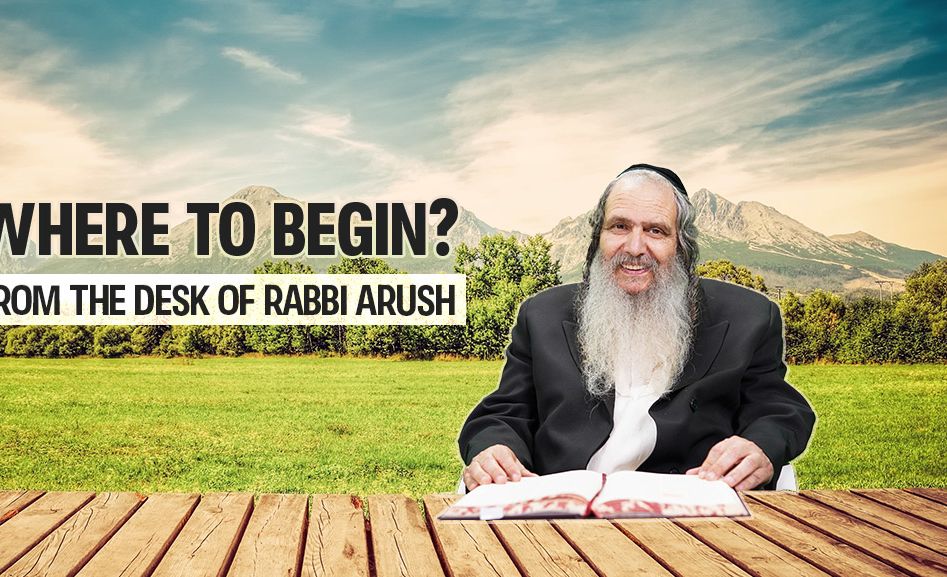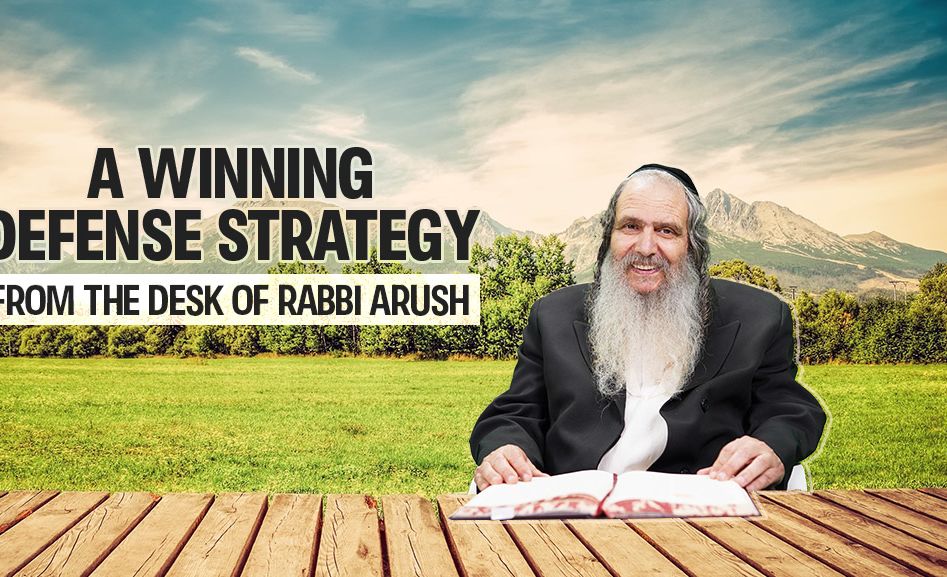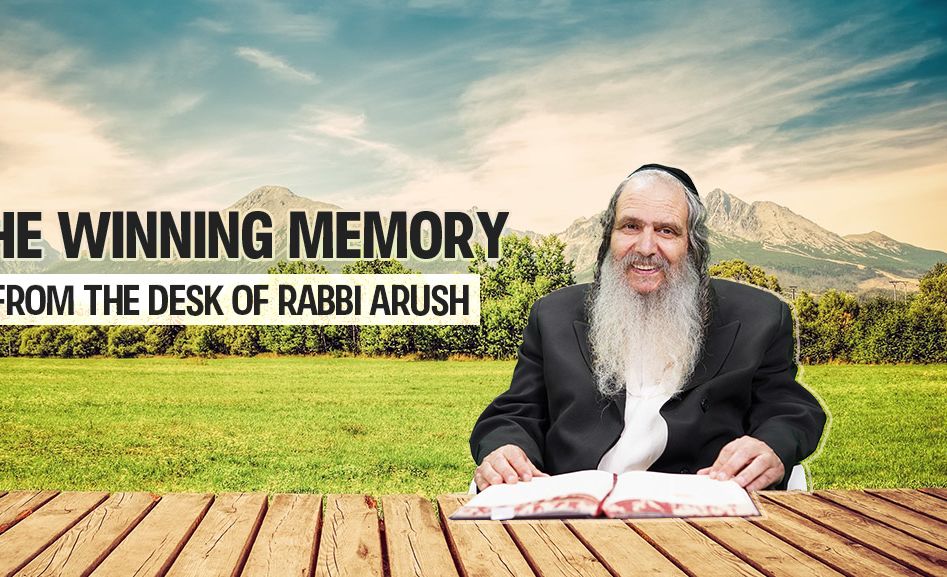
Relaxation for the Soul
Do your soul a favor and give it a daily respite from the pressures of the outside world. Here is the very best form of relaxation, better even than a vacation in the Alps...

Looking for relaxation of the soul? Who isn’t?! Today, I’ll teach you:
We learn in stages: first comes the theoretical, then we exercise what we’ve learned and finally, we internalize. The most important aspect of personal prayer – the greatest relaxation of the soul there is – is perseverance. Perseverance will lead to internalization, until you won’t be able to go one day without talking to Hashem.
The more you speak to Hashem, the better you’ll be able to speak to Hashem. You’ll get to know yourself, what your task in the world is, what to do and what to avoid doing. You’ll develop your own personal style of hitbodedut, or personal prayer. Don’t expect this to happen overnight; it takes time, and there are ups and downs for one’s entire life.
Prepare yourself before your personal prayer session. It’s perfectly alright to jot down the things you want to speak to Hashem about. Don’t worry if your personal prayer session was successful or not, whether the words flowed or not or whether you were or were not inspired and uplifted. Don’t even be concerned if you dozed off in the middle of speaking to Hashem. The main thing is to set aside the hour for personal prayer and to stick to it, no matter what.
A person must be strong in his conviction to speak to Hashem. At the end of his hour, he should say: “Thank You, Hashem, for enabling me to speak to You in this hour of personal prayer. Please enable me to speak to You again tomorrow.” A person who speaks to Hashem daily will surely merit in pouring his heart out; even if he doesn’t, the mere preparation for speaking to Hashem is a lofty mitzva in itself.
To succeed in personal prayer, one must persevere and not look at the outcome, whether his session was successful or not. Many people lose heart – or don’t even start – because they’re afraid that they won’t be  able to speak to Hashem properly, or they’re hesitant at being tongue-tied or feeling foolish, or they don’t know what to say. Those who feel that no one hears them are prone to depression. But, if they prepare themselves to perform their hour regardless of the outcome, they succeed in speaking to Hashem every day.
able to speak to Hashem properly, or they’re hesitant at being tongue-tied or feeling foolish, or they don’t know what to say. Those who feel that no one hears them are prone to depression. But, if they prepare themselves to perform their hour regardless of the outcome, they succeed in speaking to Hashem every day.
There are those who claim that they don’t have the time to devote to a daily hour of personal prayer. But, those who believe in tzaddikim in general, and in Rebbe Nachman in particular, must remember that Rebbe Nachman lauded personal prayer as more important than anything – a virtue that surpasses all others! He’ll therefore make the time for an hour of personal prayer.
The holy Zohar promises that anyone who engages in a daily hour of personal prayer will not see the face of purgatory. Anyone with sense would surely take such a promise to heart. Even more so, daily personal prayer is spiritually enriching and gives a person new and deeper insight every single day.
Most important, a person shouldn’t be disappointed or punish himself if his daily personal prayer session failed to meet his expectations. Whether or not he felt proximity with Hashem, he did his part! He fulfilled his obligation. Nothing is greater than standing before Hashem in a daily hour of personal prayer.
Rebbe Nachman called personal prayer “self-composure” and “relaxation for the soul.” While other prayers are governed by religious law and statutes (proper time, proper place, when to stand, when to sit, when to vocalize and when to be silent, and the like), personal prayer is free of limitations. One can structure it any way he likes. It can be any time of the day, before meals or after. It can be standing, sitting, or even lying in bed. The important thing is to feel calm and comfortable, far away from the chinchilla-wheel and rat-race of modern routine. Once a person is calm and self-composed, he can pour his heart out. So, never forget to sever yourself from the pressures of the outside world before you speak to Hashem. This daily hour of spiritual relaxation will do wonders for mind, body and soul.
It’s important to feel comfortable in the place where you’re speaking to Hashem. There should be nothing that can interrupt or frighten you. Turn your cell phone off. Relax. Breathe deeply and loosen up. Say a few words of thanks to Hashem and try to feel relaxed and composed.
Anywhere one speaks to Hashem from is fine, but a field or a secluded place is wonderful if you have access. Out in nature and under the stars or a blue sky, one’s heart opens. Midnight is also a superb time. Yet, if any of these conditions make you feel uncomfortable, avoid them. Do what works for you. Try to steer clear of time pressures and other commitments that force you to look at your watch every minute. The goal is self-composure and speaking to Hashem while feeling emotionally relaxed.
Pick a time and place that are most comfortable and convenient for you, during which you can feel relaxed and not pressured. In time, this will become your favorite hour of the day.












7/09/2017
Dealing with the death of a young woman
My family is having a difficult time in dealing with the death of a young woman that my daughter grew up with. She was 32 years old, mother of 5 young children, and a Lubavitcher Shlucha. Her youngest is 6 months old. If Hashem has only love for us and only wants the best for us then why is a devout young mother taken from her family. We are having a hard time understanding and accepting this situation. I am reading The Garden of Gratitude so I thought of contacting you. Respectfully, Chana Gittel Slurzberg
7/09/2017
My family is having a difficult time in dealing with the death of a young woman that my daughter grew up with. She was 32 years old, mother of 5 young children, and a Lubavitcher Shlucha. Her youngest is 6 months old. If Hashem has only love for us and only wants the best for us then why is a devout young mother taken from her family. We are having a hard time understanding and accepting this situation. I am reading The Garden of Gratitude so I thought of contacting you. Respectfully, Chana Gittel Slurzberg